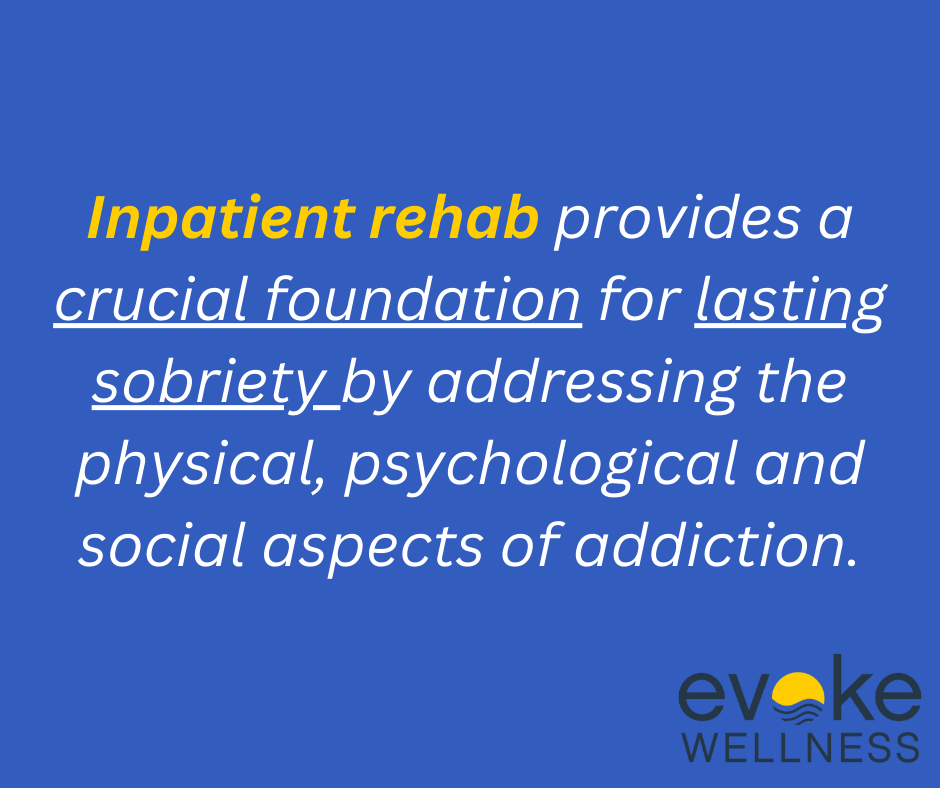When you’re struggling with addiction, finding the right path to recovery can feel overwhelming. You may wonder if outpatient programs are enough or if you need more intensive support. That’s where inpatient treatment comes in. By immersing yourself in a structured, supportive environment 24/7, you give yourself the best chance at lasting sobriety. Whether you’re considering men’s rehab or women’s rehab, inpatient programs offer unique benefits that can be essential for successful recovery. In this article, we’ll explore why checking into a residential treatment facility could be the turning point in your journey to overcome addiction and reclaim your life.
Call us at (866)429-2960 today or reach out online.
What is Inpatient Treatment and Why is it Important?
Intensive, Round-the-Clock Care
Inpatient treatment involves living at a residential facility full-time. This provides a safe, trigger-free environment with 24/7 support and supervision from medical professionals.
Comprehensive Healing Approach
Beyond just addressing the addiction itself, quality inpatient programs promote holistic healing. This includes therapy for any underlying mental health issues, counseling, life skills training, nutrition education and more.
Structured, Focused Setting
Being immersed in an inpatient program allows you to step away from everyday stressors and solely concentrate on your recovery. The structured daily schedule helps instill discipline, accountability and healthier routines.
The Benefits of Inpatient Treatment
24/7 Medical Supervision
Inpatient rehab provides around-the-clock medical care and supervision. This ensures your safety during the vulnerable detox and early recovery phases. Clinicians can provide immediate care and adjust treatment plans as needed.
Structured Environment
An inpatient setting removes you from addiction triggers and stressors. The highly structured daily schedule promotes new routines focused solely on your recovery. You’ll also be surrounded by peers working towards the same goals.
Specialized Programs
Many inpatient facilities offer gender-specific tracks like men’s rehab and women’s rehab. These specialized programs create an added level of comfort and understanding. They allow patients to address issues unique to their gender and experiences.
Comprehensive Services
Inpatient treatment provides a full continuum of care. You’ll have access to medical detox, behavioral therapy, counseling, holistic healing, life skills training, and more. This comprehensive approach supports physical, mental and emotional healing.
How Inpatient Treatment Works
Comprehensive Care
Inpatient rehab provides 24/7 monitoring and medical support. You receive:
- Medically-supervised detox to safely remove substances
- Counseling and therapy to address root causes
- Holistic healing like nutrition, fitness, and mindfulness
Structured Environment
Removing access to drugs/alcohol is crucial. Inpatient facilities offer:
- Substance-free setting to break addictive patterns
- Routine with scheduled treatments and activities
- Peer support from others on the recovery journey
Continuity of Care
After completing the inpatient program, you transition to:
- Outpatient counseling or sober living
- Ongoing support groups and community resources
- Family therapy to rebuild relationships
The immersive inpatient approach treats mind, body and spirit. With no distractions, you can fully focus on overcoming addiction.
What to Expect During Inpatient Treatment
During inpatient treatment, you will be fully immersed in a supportive and structured environment designed for recovery. Expect around-the-clock care and support from medical professionals and counselors.
Medically Supervised Detox
- Safe management of withdrawal symptoms
- Medication assistance if needed
Therapy Sessions
- Individual and group therapy
- Cognitive behavioral therapy (CBT)
- Family counseling
Holistic Healing
- Exercise and nutrition programs
- Mindfulness and meditation practices
- Creative outlets like art or music therapy
Aftercare Planning
- Relapse prevention strategies
- Transition to outpatient or sober living
- Ongoing support resources
Inpatient rehab provides a crucial foundation for lasting sobriety by addressing the physical, psychological and social aspects of addiction. With specialized care tailored to your needs, you can heal in a secure setting focused solely on your recovery journey.
Types of Inpatient Treatment Programs
Residential Treatment
- Live on-site with 24/7 monitoring and support
- Highly structured daily schedule
- Intensive individual and group therapy sessions
Partial Hospitalization Programs (PHPs)
- Intensive outpatient treatment during the day
- Patients return home at night
- Transition between inpatient and outpatient care
Mens Rehab Programs
- Gender-specific therapy groups and activities
- Address issues unique to men in recovery
- Build supportive male peer networks
Womens Rehab Programs
- Safe, nurturing environment for female patients
- Process trauma, self-esteem, co-occurring disorders
- Heal alongside others on a similar journey
The right inpatient program depends on your needs. Exploring specialized options increases your chances of achieving lasting sobriety.
Finding the Right Inpatient Treatment Center
Accreditations & Licenses
- Look for centers accredited by reputable organizations like the Joint Commission
- Ensure they have proper state licenses and certifications
Treatment Philosophy
Understand their approach – do they follow evidence-based practices? Treatment should address underlying issues, not just symptoms.
Specialized Programs
See if they offer programs tailored to your needs – gender-specific (men’s/women’s rehab), dual diagnosis, trauma, etc. The right fit is crucial.
Staff Qualifications
Opt for centers with experienced, licensed professionals – addiction counselors, therapists, medical staff. Proper credentials matter.
Aftercare & Alumni Support
Comprehensive aftercare planning and alumni communities can boost long-term recovery success rates. Look for these resources.
FAQs About Inpatient Treatment
What is inpatient treatment?
- Inpatient or residential treatment provides 24/7 comprehensive care and support. Patients live on-site for 30-90 days while undergoing intensive therapy.
- This highly structured environment removes access to addictive substances. It allows the sole focus to be on recovery.
Who needs inpatient rehab?
- Those with severe, long-term addictions often require inpatient care. The around-the-clock monitoring helps prevent relapse.
- Inpatient rehabs like men’s and women’s programs offer specialized care. This accounts for gender-specific needs and experiences.
What happens during treatment?
- Detox from substances under medical supervision occurs first, if needed. Then evidence-based therapies like CBT begin.
- Holistic care like nutrition education, exercise, and mindfulness promote overall healing. Family therapy provides relationship tools.
Conclusion
In conclusion, inpatient treatment can be a crucial step on your journey to recovery. By providing a structured environment, intensive therapy, and 24/7 support, these programs offer you the best chance at long-term success. Remember:
- Men’s rehab and women’s rehab programs address gender-specific needs
- Inpatient care removes you from triggers and negative influences
- You’ll gain valuable coping skills and build a support network
Whether you’re struggling with addiction, mental health issues, or both, inpatient treatment can give you the tools and confidence to reclaim your life. Don’t hesitate to reach out for help – your path to recovery starts with making that courageous first step.
Begin Your Journey with Evoke Wellness
If you or a loved one is considering treatment, Evoke Wellness invites you to contact us. Our compassionate team is ready to answer your questions, discuss your needs, and help you take the first steps toward recovery. At Evoke Wellness, you will find more than just a treatment program – you’ll discover a community dedicated to your wellness and success. Together, let’s embrace the journey to recovery and the promise of a new beginning. Call us at (866)429-2960 today or reach out online.



